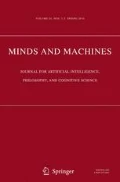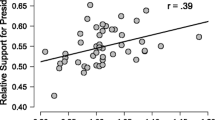Abstract
Since the mid-twentieth century, the concept of the Turing machine has dominated thought about effective procedures. This paper presents an alternative to Turing's analysis; it unifies, refines, and extends my earlier work on this topic. I show that Turing machines cannot live up to their billing as paragons of effective procedure; at best, they may be said to provide us with mere procedure schemas. I argue that the concept of an effective procedure crucially depends upon distinguishing procedures as definite courses of action(- types) from the particular courses of action(-tokens) that actually instantiate them and the causal processes and/or interpretations that ultimately make them effective. On my analysis, effectiveness is not just a matter of logical form; `content' matters. The analysis I provide has the advantage of applying to ordinary, everyday procedures such as recipes and methods, as well as the more refined procedures of mathematics and computer science. It also has the virtue of making better sense of the physical possibilities for hypercomputation than the received view and its extensions, e.g. Turing's o-machines, accelerating machines.
Similar content being viewed by others
References
Gandy, R. (1988), 'The confluence of Ideas in 1936', in R. Herkin, ed., The Universal Turing Machine: A Half-Century Survey, Oxford: Oxford University Press, pp. 55–112.
Gandy, R. (1980), 'Church's thesis and principles for mechanisms', in J. Barwise, J.J. Keisler and K. Kunen, eds., The Kleene Symposium, Amsterdam: North Holland, pp. 227–258.
Gödel, K. (1965), 'Remarks Before the Princeton Bicentennial Conference on Problems in Mathematics', in M. Davis, ed., The Undecidable, New York: Raven Press, pp. 84–88.
Hausman, D.M. (1998), Causal Asymmetries, Cambridge: Cambridge University Press.
Hofstadter, D. and Dennett, D. (1981), The Mind's Eye, New York: Basic Books.
Kleene, S. (1988), 'Turing's Analysis of Computability, and Major Applications of It', in R. Herkin, ed., The Universal Turing Machine: A Half Century Survey, Oxford: Oxford University Press, pp. 17–54.
Minsky, M. (1967), Computation: Finite and Infinite Machines, Englewood Cliffs: Prentice-Hall.
Pearl, J. (2000), Causality, Cambridge: Cambridge University Press.
Rosser, J.B. (1939), 'An Informal Exposition of Proofs of Godel's theorem and Church's Theorem', in M. Davis, ed., The Undecidable, New York: Raven Press, pp. 223–229.
Turing, A. (1965a), 'Systems of Logic Based on Ordinals', in M. Davis, ed., The Undecidable, New York: Raven Press, pp. 155–222.
Turing, A. (1965b), 'On computable Numbers with an Application to the Entscheidungsproblem', in M. Davis, ed., The Undecidable, New York: Raven Press, pp. 116–151.
Searle, J. (1992), The Rediscovery of the Mind, Cambridge: MIT Press.
Wang, H. (1974), From Mathematics to Philosophy, London: Routledge and Kegan Paul.
Author information
Authors and Affiliations
Rights and permissions
About this article
Cite this article
Cleland, C.E. On Effective Procedures. Minds and Machines 12, 159–179 (2002). https://doi.org/10.1023/A:1015606528623
Issue Date:
DOI: https://doi.org/10.1023/A:1015606528623




